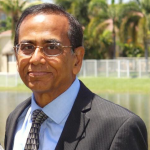
Can the people gain ground in the struggle for self-government, or will their rulers bear it away?
Nazarul Islam
A decade ago, Arab peoples stood up and sought to replace their rulers with a more democratic political project. But Arab autocrats have a project of their own. Can the people gain ground in the struggle for self-government, or will their rulers bear it away? Tunisia, the birthplace of the Arab Spring Movement, which took over the Middle East by a storm is now one of the Arab world’s most democratic countries, but it has also been producing worrisome numbers of recruits for groups such as ISIS. How can this paradox be explained?
Arab Spring was a defying moment that became threshold of Islamic struggle. Obviously, the Middle East was ahead of its time—and certainly ahead of the West—on at least one thing: existential debates over culture, identity, and religion. During the heady, sometimes frightening days of the Arab Spring, the region was struggling over some of the same questions Americans are contending with today. What does it mean to be a nation? What do citizens need to agree on in order to be or become a people? Must the “people” be united, or can they be divided?
Tunisia, the birthplace of the Arab Spring Movement, which took over the Middle East by a storm is now one of the Arab world’s most democratic countries, but it has also been producing worrisome numbers of recruits for groups such as ISIS.
The fall of stagnant Arab autocracies opened up a divide over religion, illiberalism, and the relationship between Islam and the state. Liberalism—with its emphasis on nonnegotiable freedoms, individual autonomy, and minority rights—faced an uphill battle. Liberalism requires liberals, and there simply weren’t enough of them.
In the Middle East, Muslims went further, because they could. In the absence of a pre-existing liberal consensus, alternatives to liberalism—in the form of Islamism—weren’t merely considered; they were voted into power. In Egypt and Tunisia, this period, brief as it was, represented a certain “model” of peaceful intellectual combat. Political life was vibrant, perhaps too vibrant. The freedom to think differently and imagine alternative futures can be disorienting, and so the experiment was ended by those who had the power to end it.
Islamists, whom Westerners until not long ago (incorrectly) called Islamic fundamentalists, were the most vigorous objectors to a secular-liberal consensus that, at the time, seemed secure. As far as the post-Cold-War era was concerned, Islamist movements were carrying the banner of anti-liberalism before anti-liberalism was cool.
This was the “End of History,” when ideological alternatives seemed unimaginable. Francis Fukuyama, a Japanese scholar had observed that only Islam seemed able to offer a viable intellectual counterpoint to liberal presumptions. But even this exception seemed to hint at liberalism’s intellectual hegemony. After all, it was more difficult to convert to a religion than to subscribe to an ideology. In one of history’s ironies, what might have been a counterpoint became a confirmation.
Over the last century, hundreds of articles and monographs have attempted to outline a distinctly Islamic conception of politics and the state. Muslims’ encounter with the West—and Western colonialism—is what made this conception both possible and necessary. There had, of course, long been a rich classical Islamic tradition, focused on the primacy of the law, or sharia. But sharia was not law in the modern or Western sense. It was not codified, and it could not be found in any single repository. Rather, it was an organic and decentralized corpus of contingent rulings by jurists and judges.
This should not be a surprise. Islam and the legal corpus it generated were not designed for the nation-state. How could they have been? The Qur’an, which Muslims consider not only the word of God but God’s actual speech, was revealed in an era when nation-states did not yet exist. Islam’s crisis—one imposed on it by circumstances largely outside its control—arose from the need to accommodate Islam’s outsized public role within the inherently secularizing nature of the modern state. Beginning with the late Ottoman Empire’s Tanzimat reforms, which attempted to codify Islamic law for the first time, the modern state took it upon itself to systematize and regulate.
And to regulate something was to domesticate it, lest it threaten state power and authority. The nation-state was not religiously neutral, nor could it be. Once the state had been elevated as the engine of legislation and the focal point of attachment and affinity, there was no real way to replicate the old sharia-based system, based as it was on a decentralized legal pluralism.
In the early twentieth century, the so-called “Islamic modernists” observed the success of the colonial project on the one hand, and the many and varied Muslim failures on the other.
Though it was not their purpose, the Tanzimat hastened what the legal theorist Wael Hallaq calls the “evisceration” of the sharia. With increasingly uniform legal codes, the state was strengthened and the role of clerics weakened. Contrary to what secularists might assume, this change was not necessarily for the best. A self-regulating clerical class had provided a crucial check on the caliph’s executive power and authority. As keepers of the law, the clerics had ensured that the caliph was bound by something beyond himself.
Secularizing states wished to “rationalize” Islam and subordinate it in the service of the state. In a different way—but with similar effects—Islamists, too, wished to rationalize Islam. Their goal, however, was not to constrain Islam’s role in politics and public life, but to unleash it.
In the early twentieth century, the so-called “Islamic modernists” observed the success of the colonial project on the one hand, and the many and varied Muslim failures on the other.
Troubled, they asked—and tried to discern—what could be done. For centuries, Muslim thinkers had looked down on Christian Europe, which they viewed as backward and obscurantist. This sense of superiority became untenable as Europe closed the gap and soon enough eclipsed the Muslim world altogether.
The Islamic modernists were the original “Salafis”: a word commonly associated today with ultraconservative literalism, theocratic rule, and religious violence. But for these first “Salafis,” the basic thrust was quite different.
They hoped to return to the unadulterated Islam of al-Salaf al-Salih, the early generations of Muslims who were closest in time and proximity to the Prophet Muhammad. But for these reformers, the purification of Islam meant moving away from literalism, not toward it. This was how they would revive Islam and restore it to its proper place. They had little confidence in a weakened clerical class that had responded to its own marginalization by retreating further into obscure topics and circular legal commentaries.
The modernists—most prominent among them men like the pan-Islamic ideologue Jamal al-Din al-Afghani (d. 1897), the Egyptian theologian Muhammad Abduh (d. 1905), and the Levantine theorist Rashid Rida (d. 1935)—were alarmed by the influx of Christian missionaries under colonial rule.
They feared that ordinary Muslims, who they believed held to superstitious, mystical understandings of Islam, would fall under the sway of Christian arguments about the contradictions of the Qur’an and Islamic inferiority more broadly. Their solution was innovative and distinctly modern: They would affirm the inherent rationality of Islam. In this respect, Rashid Rida’s apologetics are illustrative.
For Rida, Islam is the “religion of reason,” “the ally of the sciences,” and “nearer to mankind’s innate disposition and intelligence.” He advises his readers: “You may come to know your religion’s truths through logical proof and evidence.”
End Part-1
_________________
 The Bengal-born writer Nazarul Islam is a senior educationist based in USA. He writes for Sindh Courier and the newspapers of Bangladesh, India and America. He is author of a recently published book ‘Chasing Hope’ – a compilation of his articles.
The Bengal-born writer Nazarul Islam is a senior educationist based in USA. He writes for Sindh Courier and the newspapers of Bangladesh, India and America. He is author of a recently published book ‘Chasing Hope’ – a compilation of his articles.